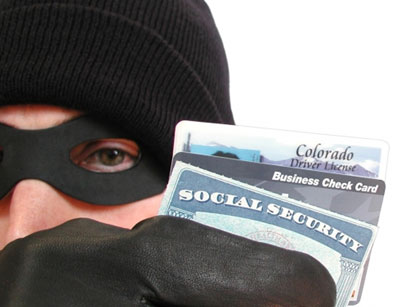
Technology has made connecting with people much easier than in years past. One benefit is the ability to send money to loved ones via wire transfer through agencies such as Western Union. Every benefit of technology brings inherent dangers and risks with it.
Fraud has been a major issue for consumers and agencies since the beginning of businesses. Scammers are getting more throughout with their techniques and no one is safe from their fraudulent attempts. Knowing what to look for when sending money to loved ones is crucial to ensuring your money makes it to the intended person for the intended reasons.
We got some advice from Western Union on what consumers need to look out for when they’re contemplating sending money. Here are some important tips to following:
Only send to people you’ve met in person. This may seem obvious, but many people get caught up in sending money to people they’ve never ever scene a photo of. Scammers may establish a relationship over the phone in an effort to earn the sender’s confidence to use against them when asking them to send money.
Do your research for emergencies. I’ll never forget one late December evening when an elderly lady came to our store. She had tears in her eyes because she had to send thousands of dollars to her grandson somewhere in Canada who was stranded and need money to fly home for the holiday. She didn’t know where he was in Canada nor could she recall him saying anything about such a trip. It turned out to be a scam and her money was not sent. This is a popular tactic for fraudsters. They pose as a foreign law enforcement agency requiring someone to send money to bail their grandchild or relative out of jail. The best thing to do in this case is verify the information with another relative that would be aware of your loved ones’ whereabouts. Better yet, if you call Johnny directly and find out he’s in the school library studying for the huge exam he has in two hours, it’s probably fraud.
Don’t send money to someone you “met” online. This is too easy for fraudsters. It’s so easy to Google someone’s picture and use that as your own. Men can pose as young females and vice versa. Trust is gained and as soon as the fraudster feels they have it they make a move and ask you to send money to help them pay for something (tuition, loans, bail, etc.). Follow the first principle and only send money to people you’ve met in person.
Don’t send money to claim lotteries or other prizes. If you receive an email congratulating you on your new winnings, as yourself a very important question: “Have I entered any drawings lately? How did they say they would notify me?” If you didn’t enter a contest, you probably didn’t win anything. I’d love to win the lottery, but I have to buy a ticket no matter how strong my wishful thinking is. It’s best to follow the old adage of “If it sounds too good to be true, it probably is.”
Don’t send money to apply for a job. What employer does this? I’ll tell you: None! I’ve ever been asked to pay to interview for a job or to receive an employment opportunity. If you’re being asked to send money to apply for a job you can bet your money it’s a very elaborate scam.
Don’t send money for credit cards, loans, or rentals. If you’re renting equipment, it’s best to pay for said equipment upon pick at the licensed location. It’s too easy for fraudsters to collect your money and never deliver on their “word” or “promise.” You can also forget tracking them down as most use prepaid or throw away phones. Credit card companies have their own, secure ways to determine whether you’re worthy of having their card or using their money for a loan that does not involve you wiring money to them.
Don’t send money for online purchases. Almost all online businesses have secure ways of accepting payment for goods or services. This usually involves a debit or credit card on a secure network. If a “company” wants you to send your money via wire transfer something is wrong. Check the Better Business Bureau to see if their company is listed. Try finding a real address or phone number for the said business to verify before sending your money and getting nothing in return.
If caution is ignored and you later discover you were the victim of fraud it’s often too late to recover the money. Once the money is paid out it’s gone. Fraudsters work very quickly to get your money before you realize what’s really happening. Money transfers are fast today, which is great for sending money to loved ones, but a nightmare when you fall victim to a scam.
Following these simple tips will help you protect your hard-earned money and make sending money less stressful. For more information, you can visit Western Union’s website at www.westernunion.com or go to your local authorized Western Union Agent and ask how you can further protect your money from fraud.


